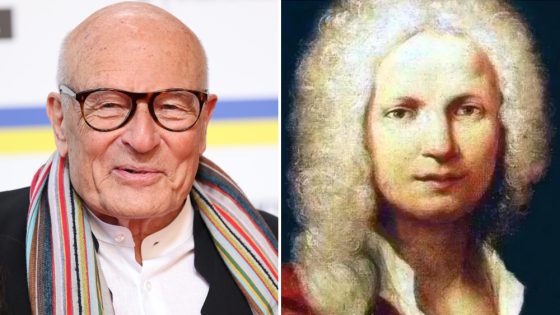German director Volker Schlöndorff, who won the Cannes’ Palme d’Or and an Oscar for his 1979 drama “The Tin Drum,” is set to direct a film about how Antonio Vivaldi — the 18th-century Italian composer of “The Four Seasons” — formed what is touted as the world’s first all-female orchestra.
Schlöndorff’s still-untitled depiction of this lesser-known aspect of Vivaldi’s career is based on a book by German writer Peter Schneider, which has been adapted for the big screen by Italian scribe Francesco Piccolo (“My Brilliant Friend”) along with the director.
The plan is for cameras to start rolling later this year on the film, which will mark the first foray into Italian-language cinema by Schlöndorff, who is a fluent speaker. It will be shot entirely in Italy. Casting is still being decided, and sales are likely to be launched at the Cannes market in May.
Schlöndorff’s new project is being lead-produced by Italy’s Oscar-nominated producer Donatella Palermo – who shepherded two Berlin Golden Bear winners in the Taviani brothers’ “Caesar Must Die” and Gianfranco Rosi’s “Fire at Sea” – via her Rome-based Stemal Entertainment, in co-production with France’s Citè Films and Argos Films as well as Germany’s Volks Film.
Vivaldi’s music is played all over the world, but not everyone knows that he was also a priest, nicknamed “il prete rosso” (the red priest) due to his red hair. He worked all his life as a musical educator and violin teacher in an orphanage in Venice called the Pio Ospedale della Pietà, established by the local ruling class to raise young women and give them prospects “beyond an arranged marriage or becoming prostitutes,” Palermo said. “Music was their salvation. And it also saved Vivaldi, who was very insecure and had a stutter.” Vivaldi served as music director at the orphanage from 1703 to 1715 and again from 1723 to 1740. In those years, he wrote hundreds of pieces of music for its all-female orchestra and choir.
Schlöndorff’s film will explore Vivaldi’s conflictual relationship with the clergy, art and eroticism. In his director’s statement, Schlöndorff underlined that his Vivaldi film won’t be a biopic set against a backdrop of “a Venice full of carnivals, baroque festivals and gondolas.” It will instead recount the years during which Vivaldi teaches music to the orphan girls. “With them, Vivaldi forms the first female orchestra in the world, who in the movie will all be played by real musicians and singers,” he said.
“What relationship does the ‘red priest’ have with his musicians?” Schlöndorff’s statement asks. “No one will ever really know. What we do know is that Vivaldi always pushed himself beyond his limits. He was obsessed and irrepressible, in music and in life.”
Besides “Tin Drum,” Schlöndorff’s other credits comprise “A Degree of Murder” (1967) starring Anita Pallenberg; “The Lost Honor of Katarina Blum” (1975); “The Handmaid’s Tale” with Natasha Richardson, Robert Duvall and Faye Dunaway (1989); “Ogre,” (1996); “Palmetto” (1998) with Woody Harrelson; “The Ninth Day” (2004) and WWII drama “Diplomacy” (2014).
Source Agencies



